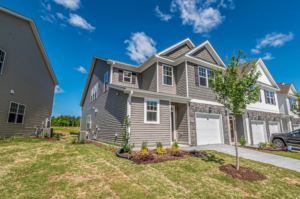Are you ready to become a home-owner? Few things beat the feeling of buying your first home, because this is one milestone in your life that shows the world that you’re thriving and now have your very own piece of the world.
The process of buying your first home can be exhilarating and terrifying all at the same time, but when you do it right and come in prepared, it can also be nothing but smooth sailing. There are a few key details you’ll need to be aware of when buying your home in order to be well-prepared.
So, for all the first-timers taking the leap and buying a home, keep on reading because we’ve compiled a list of mistakes to avoid to help you make the process as smooth as it can be.
1. Not doing enough research
First-timers, you need to take into consideration that when you are buying a house, it’s not just about the state of the house but getting the right location, knowing the title deeds and being aware of the market, too. Here are some things you need to be researching before you commit to buying a house:
- Neighborhood – first, location, location, location! You need to know as much as you can about the area you want to live in. Make sure it is somewhere you can see yourself living for the long term. Remember that the value of the property also depends on the neighborhood
- Home loan options – Never take the first home loan offered to you; this is one of the most important aspects you need to research. Your best option is to hire a professional in the home loan industry (like a mortgage broker) who can aid you in finding the best home loan as a first home buyer
- Market fluctuations – Before you buy a home, it’s important to research the property market and anticipate trends. When you’re in the know about the market, you’ll be able to see what products are available to you so you can know what your property is worth. Should you get a revaluation, you might have better financial options
- Property title – Something you should never overlook when doing your research is analyzing the title deeds. You should receive this information through your solicitor, but once you’ve set your sights on a property, go and look up the title deeds to check if there is any debt remaining on the property or any other surprises

2. Choosing the wrong loan product or provider
First up on the list is choosing the wrong loan. As soon as you start looking at buying a home and getting a home loan, your eyes are opened to how many different loan products there are out there. While this gives you a ton of choices, it can also open you up to choosing the wrong product, which means if you don’t do your research, there’s a chance you’ll get stuck with terrible interest rates and a debt you’re struggling to pay off.
The key is to find a loan that ticks all the boxes. As challenging as this can be, it’s not impossible. Essentially, choosing a loan is going to come down to finding a debt burden and risk that you feel most comfortable with.
Talking to a mortgage broker or a financial planner can make all the difference because, with these professionals, you’ll be able to compare rates, and they can provide guidance throughout the process of buying a home. Also, prepare a list of prerequisites and questions that you can ask your potential lenders so that you have a clear vision of what you want and can make an informed decision.
3. Borrowing beyond your budget
Picture this: you’re on the market for your first home, and a beautiful house pops up on the market, and you can just see yourself making your life happen there. The only problem is it’s just out of your budget. When you’re spending so much on a home already, it can be tempting to think, “Well, it’s only a couple extra thousand dollars; it’s not that much more.” Stick to your budget.
The bank may be willing to lend you the extra money, but one of the biggest mistakes you can make as a first-time buyer is being unrealistic about the amount that you can afford to pay back. It’s not just about the price but the size of the commitment you’re taking on. Think about it: you’re committing to regular repayments for more than a decade. In order to do this, you need good job stability and the ability to cope if there is a sudden spike in interest rates.
Remember, when you’re buying a house, there are many expenses associated with it. The deposit is a big one, but there are maintenance, repairs, interest rates, and so on. You need to be prepared for all of these expenses and not just the initial price of the home. So, it might not seem like a huge deal at the moment, but your future self will thank you for crunching the numbers and being realistic about what you can afford to pay.
Final Thoughts
Finally, being able to buy your first home is a cause to celebrate, but it is a huge commitment! So, before you dive in and sign the mortgage, ensure you’ve crunched the numbers and covered all your bases by avoiding these mistakes. Once you’re confident that you can afford the home and all the expenses, and you’ve got a loan that’s tailored for you, it’s time to collect the keys and call yourself a homeowner!
